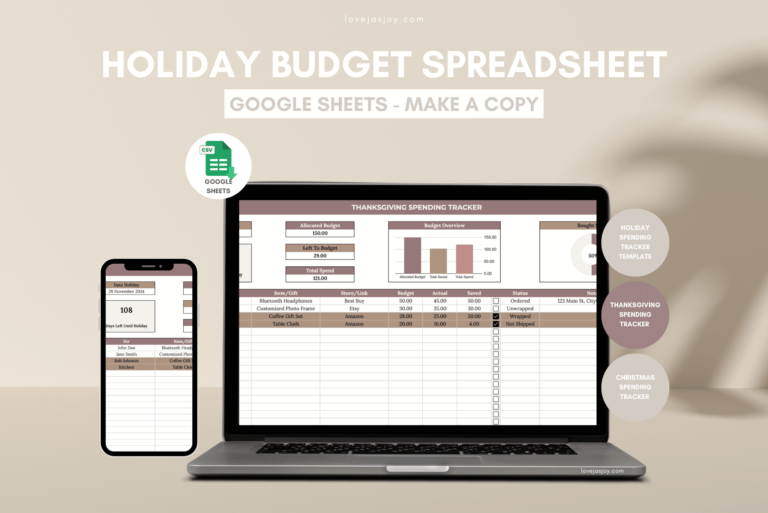Tips You Need to Know for Transitioning from College to Career: An In-Depth Guide

Disclaimer
Please note that this blog post may contain affiliate links to products or services from third-party websites. The information provided in this blog post is based our own personal experiences, research, and opinions. By reading this blog post, you acknowledge and agree to the terms of our full disclaimer. If you have any concerns or questions, please feel free to contact us.
GRADUATION! The most exciting, yet nerve wracking, time of college. It gives you an exhilarating sense of accomplishment, but once that feeling wears off, there’s that looming question: “What the heck is next?” If you are feeling a bit overwhelmed by the shift from college to career, it is okay! You are not alone. The transition is a major life event, but there are ways to make it smoother.
This in-depth guide is packed with tips that are specific to you! We aim to equip you with all the necessary insights and strategies to help you save your career before it even begins. OR if you are already part of the professional work environment, it is to help you continue stepping up the ladder of success.
WITH THAT SAID, HERE ARE TIPS YOU NEED TO KNOW FOR TRANSITIONING FROM COLLEGE TO YOUR CAREER! AN IN DEPTH GUIDE FOR COLLEGE GRADS AND YOUNG PROFESSIONALS.
Table of Contents
- TIPS YOU NEED TO KNOW
- #1 understand the hurdles
- #2 embrace the transition
- #3 financial literacy: budgeting and saving
- #4 forge professional relationships
- #5 seek more responsibility
- #6 brace for entry-level positions
- #7 Re-Strategize Your Daily Routine
- #8 Always Have A Plan B
- #9 Build An Accountability Circle, Seek Out A Mentor
- #10 Broaden your job search
- #11 sharpen your skills, embrace continuous learning
- #12 uphold professionalism
- #13 plan your exit
- #14 recognize the learning curve
- #15 negotiate your worth
- #16 the significance of the first job
- #17 master time management
- #18 set SMART goals
- ANSWERING THE MOST ASKED QUESTIONS
For which of you, desiring to build a tower, does not first sit down and count the cost, whether he has enough to complete it? Otherwise, when he has laid a foundation and is not able to finish, all who see it begin to mock him, saying, ‘This man began to build and was not able to finish.’
Luke 14:28-30 Tweet
Join "Love College Scoops"!
TIPS YOU NEED TO KNOW FOR TRANSITIONING FROM COLLEGE TO A WORKPLACE
College to Career Tip #1
UNDERSTAND THE HURDLES
It is important to understand the hurdles and career landscape when transitioning from college to a workplace. This means to recognize the challenges that are ahead. Just as in college, you are aware of upcoming assignments, projects and exams, and you mentally prepare for them; understanding potential hardships in the professional world sets you up for success. For example, researching the environment of your workplace before walking into it will help you to prepare and develop skills ahead of time. It will prevent you from waltzing in with the wrong work attire, help you to expand your knowledge and more. When you’re prepared, you will be more confident and the transition will be less daunting.
How to Navigate the Career Landscape:
- Navigate the Career Landscape by doing your research. Review your potential workplace’s About Page and Job Position Description.
- Review your potential workplace’s social media.
- Research on websites like Glassdoor and LinkedIn, which offer insights into companies, job expectations and industry trends
College to Career Tip #2
EMBRACE THE TRANSITION
Do your best to not be in denial, it will delay your ability to adapt. Transitioning from college to your career, into a professional work environment can be challenging. College life and work life both operate on different rhythms and priorities. Working a full-time job is TIME CONSUMING and can potentially throw your life off balance. So, with that said, recognize the shift and mentally prepare yourself to adjust your routines, habits, and mindset to better fit your new role as a professional.
How to Embrace the Transition from College to a Work Environment:
- Be proactive! Attend workshops or webinars on transitioning from college to a workplace
- Tap into your alumni network for firsthand experiences
- Create a vision board for the things you want to accomplish in your career, to encourage you to not grow weary because greater things are yet to come!
- Use a cork board or create a digital one on Pinterest or Notion! Personally favor Notion 🙂
College to Career Tip #3
FINANCIAL LITERACY: BUDGETING AND SAVING
I can not emphasize the importance of budgeting and saving! The pay difference will be significant. From minimum wage, or a little above that, to a steady paycheck and annual salary?! Trust me, you need to know how to manage your finances or else you will be splurging.
Develop financial goals so you have something to save toward. Save for a house, a car, to start paying off debt, whatever it is, pay yourself first before spending your hard earned money on anything else. Read our post on “Money Management Strategies” to learn how you can manage your finances more wisely as a student AND young professional! Develop good money habits today.
How to Start Budgeting and Saving:
- To start budgeting and saving wisely, you obviously need to know how. And you can learn how by reading our post on “Simple Guide to Budgeting in College”. It’s NOT ONLY for your college years, but it can be applied to your career as well.
- Step two in budgeting and saving, you need a budget planner! Physical or digital, to track your bills, spendings, savings, debt etc. My favorite way to manage my finances is using CoProducts Annual Budget Spreadsheet. It makes managing finances simple. ALSO read our post on “The Best Budget Planners” to discover more budget planners/spreadsheets that may be more suitable to you.

ESSENTIAL MONEY MANAGEMENT STRATEGIES
The best tips and insights to money management! Managing your finances is crucial as a young adult and professional. Build successful money habits!
College to Career Tip #4
FORGE PROFESSIONAL RELATIONSHIPS
Your network can be a massive asset in your career. In college, relationships often revolve around camaraderie and shared experiences. In the workplace, fostering professional relationships can open doors to opportunities, mentorships, and collaborations. Form bonds with your co-workers, supervisor etc to gain valuable insight about the work environment and learn how grow in your career.
How to Forge Professional Relationships:
- Attend industry seminars
- Join professional organizations
- Participate in work events and daily meetings
- Consistently engage with colleagues in your workplace
College to Career Tip #5
SEEK MORE RESPONSIBILITY
I only recommend this tip after you have acclimated to what you are already doing. Seeking more responsibility may seem a bit much, but growth is importance. Showing you are eager and dedicated leaves a big positive impression in both a school and work environment. It opens doors to more opportunities. This is a proactive approach that can lead to faster career progression.
How to Seek More Responsibility:
- Seek more responsibility after you have acclimated to your work environment. Speak to your direct supervisor or manager to learn more about what the company offers and what you can do to achieve them.
- Expand your skillset and knowledge about your position. Take on the initiative to learn and progress. Coursera, LinkedIn, Skillshare are great platforms to increase your knowledge about your field.
College to Career Tip #6
BRACE FOR ENTRY-LEVEL POSITIONS
It may be hard to accept, but your first job in your profession will 99% be an entry-level position with lower pay. Your first job might not be your dream job, but it’s a stepping stone to a higher, more desired position. Understanding that your career might begin with an entry-level role, a position that doesn’t show off your potential, can help set realistic expectations. These roles are learning opportunities, laying the groundwork for future advancements.
How You Can Brace for Entry-Level Positions:
- Align your expectations with your position
- Understand that entry-level jobs are a chance to learn and grow.
College to Career Tip #7
RE-STRATEGIZE YOUR DAILY ROUTINE
College schedules are incredibly different from 9-5 jobs. The structured, bit more flexible schedule of college classes rarely carries over to professional life. So, it is important to adapt your daily routine to fit work hours, self-care, and personal time is essential for mental health, productivity, and work-life balance.
How to Structure Your Daily Routine to Your Career:
- Structure your day by using a planner! Bring it to work and write down everything you need to follow up on for work and your personal life.
- Get yourself a planner! My favorite planner is the Legend Weekly Planner because it offers a timed daily schedule + goal setting and more. There are other options, so be sure to check out the Variety of Affordable, Unique Planners available on Amazon!
- Still prioritize self-care!
College to Career Tip #8
ALWAYS HAVE A PLAN B
The job market can be unpredictable. Backup plans are just as need in the professional realm, as they were/are in college.
Career paths aren’t always linear. Ensuring you have alternatives will keep you resilient in the face of unexpected career changes or challenges.
Write out your career goals and come up with back up plans that aligns with those career goals. If you don’t get a certain job, make sure you have another job that you can look forward to.
College to Career Tip #9
BUILD AN ACCOUNTABILITY CIRCLE, SEEK OUT A MENTOR
Transitioning can be easier when you’re not alone. Having a circle of trustworthy individuals in your professional life can be a incredibly beneficial to your work and mental life. They can offer guidance, provide constructive feedback, help you to adapt, and hold you accountable to your career goals.
Seek out a mentor who is in your career field, to help you gain insight and knowledge. You can do so by attending workshops or checking out your career center at your college/university.
College to Career Tip #10
BROADEN YOUR JOB SEARCH
You can open unexpected roos by diversifying your job search. The job market is significantly vast, and opportunities come from the most unexpected places! I can vouch for that.
You might just find a job that aligns more with your passions than what you were originally searching for. Or there may be an opportunity out there that may be offering better growth prospects.
How to + Great Resources to Help You Hunt for Jobs:

MUST READS FOR CAREER SUCCESS
The best career books for you to achieve success in your career selection and work environment. These books will encourage you to pursue the career that you want and to continue advancing your skills!
College to Career Tip #11
SHARPEN YOUR SKILLS, EMBRACE CONTINUOUS LEARNING
Both hard and soft skills are critical for career growth. Growth in your personal AND professional doesn’t end with graduation. Continuous self-improvement and development are essential for staying relevant and advancing in today’s fast-paced job market.
Industries evolve! To remain relevant, continuous learning is a must.
How to Continue Advancing in Your Career:
College to Career Tip #12
UPHOLD PROFESSIONALISM
College to Career Tip #12! Uphold professionalism. This distinguishes you and builds trust. It is important to uphold communication, appearance, and conduct to ensure that you’re taken seriously. Doing so can lead to better opportunities, respect from peers, and a conducive working environment.
How You Can Uphold Professionalism in the Workplace:
- Educate yourself by reading professionalism books. A good book to read is “How Highly Effective People Speak” by Peter Andrei to develop professional speaking habits for the workplace.
- Always strive to be punctual, respectful, and proactive.
College to Career Tip #13
PLAN YOUR EXIT
Always aim to leave your job on good terms, it will aid in your future endeavors. Your previous employer(s) is great for letter of recommendations. Every role, no matter how fulfilling, has an expiration date. It is a part of improvement and development. It is important to know when and how to move on to ensure career growth and to prevent stagnation.
Properly plan your exit, write a professional resignation letter and hand it in two weeks prior to your last day. Whether it’s for further studies or a better job opportunity, ensure smooth transitions and maintain professional relationships!
College to Career Tip #14
RECOGNIZE THE LEARNING CURVE
College definitely does not prepare you for everything. No matter how much education college provides, nothing compares to actually stepping foot into a real, professional work environment. Acknowledging this allows you to be patient with yourself and to improve steadily. Always ask questions when uncertain, and absorb as much knowledge as possible!
You can help yourself succeed by embracing this learning phase.
College to Career Tip #15
NEGOTIATE YOUR WORTH
You may or may not be able to negotiate your pay early on in your career, but when you can, take advantage of it! Know your worth. Know your value. The more skills you have that others do not, the more leverage you have.
Negotiating your worth can significantly impact your career trajectory and job satisfaction.
College to Career Tip #16
THE SIGNIFICANCE OF THE FIRST JOB
Being grateful for and knowing the significance of your first job will set the tone for your professional journey. Your initial professional role often shapes your perspective on the working world. It is a learning ground and there is always something valuable you can receive, entry-level or not. It will teach you about industry norms, workplace dynamics, and professional relationships.
It is vital to develop good values, habits, and experiences from your first job to continue excelling!
College to Career Tip #17
MASTER TIME MANAGEMENT
College to career tip #17! Efficiently manage your time to increase productivity and reduce stress! This is incredibly crucial to remaining stable in life and achieving your goals.
With added responsibilities and less structured time, it can be difficult, so use your resources and avoid procrastination! Prioritize the essentials and still make time for self-care.
The Best Resources to Master Time Management:
College to Career Tip #18
SET SMART GOALS
You have reached the last college to career tip! SETTING SMART GOALS!
Set SMART goals for yourself SMART (Specific, Measurable, Achievable, Relevant, Time-bound). Forming this habit will provide you direction, motivation, and a clear way to measure your progress. Ensure you remain on the right path and give yourself grace if you do not meet them. Adjust the goals to you!
Answering The Most Asked Questions
How long does the average graduate take to find a job?
- Depending on the profession and competitiveness, research states it can take three to six months to secure a job post-college.
What are the best industries for recent graduates?
- The industries that evolve and will never go out of style are: Tech, healthcare, and finance. However, the best industry often aligns with one’s passion and academic background.
How can I stand out in the sea of job applicants?
- Stand out by personalizing your applications, expanding your network extensively, and consider gaining additional certifications in your field. Develop skills, emphasize your unique characteristics and experiences that other graduates may not have.
How do college grads describe transitioning from college to the professional world?
- Many college graduates describe this transition as a mixed bag of emotions. Varies person by person, but it is typically a blend of excitement, anxiety, optimism, and apprehension. While college offers a structured environment, the professional world is more unpredictable challenging.
Is it hard to transition from student to adult?
- Yes, for many, this transition can be challenging. As a student, your main responsibility is often learning and personal growth. As an adult, responsibilities multiply – from managing finances, building a career, to even starting a family. The most challenging is the shift in priorities and responsibilities.
How do I transition from college to the workplace?
Transitioning effectively involves a few key steps:
- Network: Engage with professionals in your desired industry.
- Seek Mentorship: A mentor can guide you and provide valuable insights from their own experiences.
- Stay Updated: Keep up with industry trends and necessary skills to always remain relevant.
- Be Adaptable: Understand that you will always continue to learn in every single stage of life you are in. Every job role will bring new lessons.
How do you transition from college student to real-world professional?
- Everything that is included in this blog post are important for helping you to transition from college to the real professional world, smoothly.
Why is the transition from college to work so hard?
The transition is often deemed hard due to:
- Shift in Environment: College is quite a sheltered environment, while the nature of the workplace is competitive and challenging.
- Increased Responsibilities: Managing more responsibilities with much less time on your hands, is challenging. Prioritization, productivity, and time management is crucial.
- Expectation vs. Reality: At times, the job role might not meet initial expectations.
What is an important step in making a transition from college to a professional work environment?
- One of the crucial steps is to have a growth mindset. Everyone makes mistakes, and it is a part of the learning process. To succeed, it is important to continuously seek opportunities to learn, evolve, and adapt to the demands of the professional world.
Is it harder to get a job after graduating?
- The job market can be competitive. However, following the tips in this guide will help you enormously to navigate the job market. It’s also worth noting that the difficulty can vary based on the industry, region, and economic factors, so be sure to conduct your own research.
How do I get a successful career after graduating college?
To build a successful career:
- Set Clear Goals: Understand what you want from your career and set milestones!
- Never Stop Learning: Whether it’s improving your current skills or cross-skilling, investing in your education and expansion of knowledge is not a waste.
- Network Actively: Building professional relationships can open up numerous opportunities. It starts with reaching out during your college years.
- Stay Resilient: Facing hills and valleys are inevitable. Continue persevering and straining on toward your goals.
The leap from college to career can be daunting and it might feel like a giant one, but remember: every professional started where you are now!
With research, preparation, and a a bit of self-confidence, you’re well on your way to making this transition a successful one.
love, Jas Joy
Other Posts You May Like
Related Topics

A Payday Routine: How to Budget Your Paycheck Like a Financial Expert




